- All
- [Open Science Policies]
- Auvergne-Rhône-Alpes
- Bourgogne-Franche-Comté
- Brittany
- Centre-Val de Loire
- Corsica
- DROM-COM
- Grand Est
- Hauts-de-France
- Île-de-France
- Normandy
- Nouvelle-Aquitaine
- Occitania
- Pays de la Loire
- Provence-Alpes-Côte D'Azur
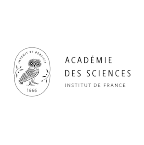
Académie des sciences
Created by Colbert in 1666, the French Académie des Sciences is an assembly of scientists, chosen among the most distinguished French and foreign specialists. It examines the political, ethical and societal issues surrounding the current and future scientific topics. The Academy reflects, anticipates, explains and pronounces itself, mainly through opinions and recommendations and takes position when necessary. It aims to provide policy makers with a framework of expertise, counsel and alert and more broadly to enlighten the debates and choices of our society. In addition, the French Académie des Sciences supports research, is committed to the quality of science education and promotes scientific life at the international level.
Portail HAL
Open Science Policy

French National Research Agency (ANR)
The French National Research Agency (ANR) is a public administrative institution under the authority of the French Ministry of Higher Education, Research and Innovation. The agency funds project-based research carried out by public operators cooperating with each other or with private companies.
The ANR was founded in 2005 to promote French project-based research and to stimulate innovation by promoting the emergence of collaborative multidisciplinary projects and encouraging collaboration between the public and private sectors. It also aims to strengthen the position of French research at European level and worldwide.
HAL portal
Open science policy

AgroParisTech
AgroParisTech is a French public institute with a rich history that spans over 200 years. A reference among the higher education establishments specialised in life sciences, AgroParisTechholds two key missions:
- To offer high quality training to students and professionals in the different curricula delivered by AgroParisTech;
- To advance scientific knowledge, in close association with public and private research centers, main relevant technical-vocational centers and industrial partners.
Its forward-looking approach is aimed at addressing the main global challenges of the 21st century:
- Feeding the population in a sustainable way,
- Protecting natural resources,
- Fostering innovation,
- Developing the bioeconom.
While doing so, it addresses the following fields: agricultural sciences and technologies, forestry, life sciences, food technology, biotechnologies, environment, nutrition, health, land and natural resources management, as well as related public policies.
HAL Portal
Open Science Policy
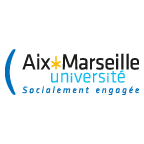
Aix-Marseille University
The largest multidisciplinary French-speaking university, Aix-Marseille University (AMU) welcomes 80,000 students and nearly 8,000 staff on 5 large campuses of international standards. Owning 90% of its assets, the university is present in 9 cities in 4 departments of the Southern Region.
Its A*Midex University Foundation, which carries the IDEX on a long-term basis, contributes to the development of a world-class interdisciplinary higher education and research centre. Known as an “intensive research university”, it is home to 122 research structures linked to major national research organisations.
Created on 1 January 2012, Aix-Marseille University (AMU) can legitimately consider, at the end of an initial period 2012-2017 largely devoted to the structuring of the single university, that it has taken up the major challenge it had set itself: to successfully merge the three universities in the area and give birth to a large world-class university.
AMU is thus an intensive research university, which has forged partnerships all over the world, which has affirmed its territorial anchorage and integration and which ranks among the very first French universities in the Shanghai ranking. AMU is a multidisciplinary university structured around five disciplinary sectors divided into 18 components (faculties, schools, institutes) and one multidisciplinary sector (including ESPE and IUT) :
- Arts, Letters, Languages and Human Sciences
- Law and Political Science
- Economics and Management
- Health
- Science and Technology
It is present in four departments and nine cities. It has a real estate portfolio spread over 58 sites representing more than 830,000 m². AMU was a winner of the Campus Operation, which, in conjunction with the CPER (State-Regional Plan Contract), enables it to rehabilitate and modernise its campuses in order to aim for the best international standards. AMU is now a recognised and identified partner, which has been able to impose its identity and assert itself as a key player in its region, in whose development and influence it plays an active role.
From 2012, AMU has developed and structured a streamlined and clear training offer. From 2012, AMU has developed and structured a streamlined and clear training offer. This work has been deepened within the framework of the master plan for the training offer that it developed in 2016 and 2017, the result of internal consultation but also of exchanges with socio-economic partners and communities. In terms of research and innovation, AMU has developed a strategy co-constructed at the site level in conjunction with the main research organisations (CNRS, Inserm, IRD, CEA, etc.) and structured around its numerous research units and federations and its five intersectoral and interdisciplinary research centres (PR2I):
- Energy
- Environment
- Humanities
- Health & Life Sciences
- Advanced Science & Technology
The excellence of the site’s research has been recognised in particular by its success in several national (labex, equipex, Instituts convergences, RHU, EUR…) or European calls for projects of the H2020 type (AMU is thus the third French institution raising funds under this programme). The labeling of the A*Midex project, carried by Aix-Marseille University and its partners (AMU, CNRS, Inserm, IRD, CEA, Assistance Publique-Hôpitaux de Marseille, Institut d’Etudes Politiques d’Aix-en-Provence and Ecole Central de Marseille), has also had a tremendous structuring and stimulating effect on the institution. It has created a real dynamic around the five priority themes and the strategic objectives identified from 2012:
- Excellence in training and research
- Partnerships with the socio-economic world
- Internationalization of the site’s areas of excellence
- Ambitious human resources policy
- Attractiveness of the site
A*Midex thus functions as an accelerator, through calls for projects or proactive actions, so that Aix-Marseille University and its partners can quickly achieve their ambitions. The perpetuation of A*Midex in 2016 reflects both the recognition of the work accomplished by AMU and the opportunity to have a formidable tool to support the university’s strategy.
At the end of a period that has seen the energies of our entire university community mobilised to build a new institution, it is on the strength of this collective dynamic that AMU is now projecting itself into its future by carrying out a project that is both ambitious and unifying for the period 2018-2022. Thus, while the first five-year contract for 2012-2017 was naturally aimed at installing and structuring the merged university. The 2018-2022 contract will be placed under the triple seal of innovation for all of the university’s fields of activity, strengthening the link between training and research and the quality approach as the guiding threads to always aim for excellence, notably with the support of A*Midex.
HAL portal
Open Science Policy
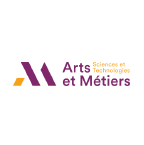
ENSAM – Arts et Métiers Sciences et Technologies
Since its founding in 1780, Arts et Métiers has been committed to meeting constantly evolving industrial challenges and societal issues. What is its primary task? To train specialist engineers in the field of sustainable technology: engineers capable not only of designing environmentally friendly products and systems, but also of overseeing an industrial organisation by controlling the risks and costs.
A disseminator of knowledge and innovation, Arts et Métiers also contributes to their production thanks to 14 research laboratories and one Doctoral School. The scientific teams are engaged in five major strategic priorities in as many economic sectors: transport, energy, health, housing and production. Research is undertaken in 20 different fields; such as digital engineering, biomechanical design, thermal energy and collaborative robotics.
Portail HAL
Politique Science ouverte
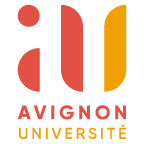
Avignon University
Avignon University’s two campuses, Hannah Arendt and Jean-Henri Fabre, are proof that culture and agro-sciences are the cornerstones of a credible future for Provence, for its youth, for living together.
The multi-century history of our University leads to active and recognized research, solid and adapted training with the aim of forging talents, accompanying graduates and launching gems. “Do not wait for the future, make it happen” is its motto.
HAL portal
Open Science Policy
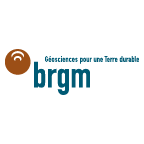
BRGM
Under partnerships with numerous public and private stakeholders, it focuses on scientific research, providing scientifically-validated information to support public policy development and international cooperation.
- understanding geological phenomena and related risks,
- developing new techniques and methodologies,
- producing and distributing data for surface, subsurface and resource management,
- providing the tools required to manage the surface, subsurface and resources, prevent risks and pollution, and manage policies in response to climate change.
HAL portal
Open Science Policy

CEA – French Alternative Energies and Atomic Energy Commission
- defence and security,
- low carbon energies (nuclear and renewable energies),
- technological research for industry,
- fundamental research in the physical sciences and life sciences.
HAL Portal
Open Science policy
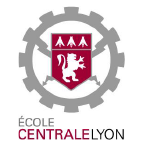
Centrale Lyon
The École Centrale de Lyon (or Centrale Lyon) is a public scientific, cultural and professional establishment (EPSCP) and an engineering school with an international reputation for teaching and research. Its mission is to train men and women capable of designing and implementing complex and innovative activities at the highest level.
Research at Centrale Lyon is structured around 6 laboratories, all Joint Research Units with the CNRS. They are dedicated to tribology, life sciences and nanotechnologies, acoustics, mechanics and aeronautics.
HAL portal
Open Science Policy
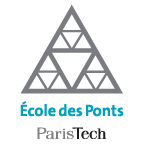
École nationale des ponts et chaussées
École des Ponts ParisTech, created in 1747 under the name École Royale des Ponts et Chaussées, is a higher education establishment that trains engineers to a high level of scientific, technical and general competency. Apart from civil engineering and spatial planning, historically the source of its prestige, the School develops high-quality programs and research associated with the energy transition.
Read more
ENS de Lyon
The École Normale Supérieure de Lyon is an elite French public institution that trains professors, researchers, senior civil servants as well as business and political leaders. Students choose their courses and split their time between training and research in sciences and humanities. Built on the tradition of the ENS de Fontenay-Saint-Cloud, founded in 1880, the ENS de Lyon also focuses on educational research. It is a symbol of French Republican meritocracy and it remains committed today to disseminating knowledge to the widest audience and to promoting equal opportunity.
The ENS de Lyon is part of the Université de Lyon and supports quality research that has earned it a Fields medal (Cedric Villani, 2010) and many CNRS medals. It encourages interdisciplinary studies to foster a better understanding of complex contemporary issues.
HAL portal
Open science policy

ENSSIB
ENSSIB is a public institution with a scientific, cultural and professional nature, in the form of a Grand établissement, created by decree n°92-25 on January 9 1992. ENSSIB is both a Grande école, aiming to train public libraries executives and librarians recruited through public service competitive exam, and a specialised university institution, issuing a national master’s degree and two ENSSIB diploma.
HAL portal
Open Science Policy
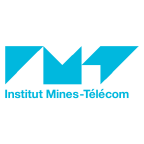
IMT (Institut Mines-Télécom)
The number one group of engineering and management graduate schools in France, IMT (Institut Mines-Télécom) is a public institution dedicated to higher education, research and innovation in engineering and digital technology. It provides the economy with 12.300 freshly-trained engineers, managers and doctors.
8 engineering and management graduate schools
IMT has also formed close ties with 12 partner institutions, known as affiliated schools.
4,100 degrees are awarded each year and 90 % of graduates go straight into permanent work contracts (figures excluding the affiliated schools).
IMT schools form a powerful group, complementing each other and working cohesively together. Their strength is founded on a shared vision to:
- train graduates for businesses,
- develop the economy and France’s territories,
- contribute to innovation and entrepreneurship.
These activities are rolled out in areas linked to the major digital, energy, industrial and educational transitions underway.
Partner-orientated research
The quality of IMT’s partner-orientated research is recognized by 2 Carnot Institute labels, (M.I.N.E.S and Carnot Télécom & société numérique) awarded in 2006 and renewed in 2011.
The research concerns projects that involve IMT research teams and its socioeconomic partners (businesses, associations, local authorities, etc.). This is a major focus of IMT’s Research and Innovation strategy.
Partner-orientated research takes many forms:
- Contractual research
- Collaborative research
- Technology transfer
HAL portal
Open Science Policy
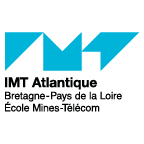
IMT Atlantique
IMT Atlantique is one of the top 10 engineering schools in France, and one of the top 400 universities in the world in THE World University Ranking. It is a general engineering grande école financed by the Ministry of Industry and Digital Communication, and the first Institut Mines Télécom “Mines-Telecom” Technological university, founded on January 1st, 2017 from the merger of Mines Nantes and Télécom Bretagne.
IMT Atlantique is:
- a Higher Education Institution with first-rate research potential, internationally recognized for its research (present in 5 disciplines in the Shanghai, QS and THE rankings).
- a resolutely multi-site institution reflecting the world in which we live. An institution with a strong local presence, and a commitment to contributing to local development
- an institution which is aware of its environmental and societal responsibility. In 2019 it was awarded the sustainable development & social responsibility accreditation.
- and finally, an institution that trains executives capable of understanding and mastering the complexity of the highly interconnected systems of the future, by combining their knowledge of the systems with that of the networks that link them.
HAL portal
Open Science Policy
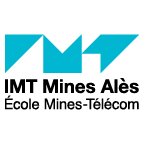
IMT Mines Alès
Among the oldest France’s elite Schools of Engineering, IMT Mines Ales (also known as Ecole nationale supérieure des mines d’Ales) was founded in 1843. The main campuses are located in Ales city, in the south of France, 1 hour from Montpellier.
While proud of its own heritage, it has recently become part of the national ‘Institut Mines Telecom’ (IMT). IMT is the biggest group of Engineering Schools in France (‘grandes ecoles d’ingenieur’: highly selective and prestigious institutions).
IMT Mines Ales’s objectives are to contribute to the economic, technological, environmental and social development. It has put a strong emphasis on its contribution to the Sustainable Development Goals (SDGs) of the United Nations. In 2020, it has ranked 301-400 in the ‘THE Impact’ world ranking dedicated to the SDGs.
IMT Mines Ales conducts research and education in 6 fields of technological expertise covering:
- Civil Engineering and sustainable building design (GCBD)
- Ecomaterials and Processing (ECOMAP)
- Environment, Energy, Risks (2ER)
- Subsurface Engineering and Mining Operations (ISERM)
- Industrial System performance and Mechatronics (PRISM)
- Artificial Intelligence and Software Engineering (2IA)
IMT Mines Ales has 1.400 students (mainly graduate and post-graduate students) including 20% of international students coming from 45 countries. IMT Mines offers many graduate courses, including several international programs fully taught in English (from 1-semester exchange programs to 2-year master curricula). It has 90 international partnerships with foreign universities, including 30 double-degree agreements.
IMT Mines Ales hosts 5 research laboratories, including 2 Joint Research Units with Montpellier University and the French National Centre for Scientific Research (CNRS), which is among the world’s leading research institutions. IMT Mines Ales is also member of 4 doctoral schools and offers various PhD programs to national and international students.
It has very strong connections with the industry and has been the first School in France to create a technological and business incubator. Every year, several start-ups from the incubator get selected to participate to the ‘CES’ international innovation show in Las Vegas.
HAL portal
Open Science Policy
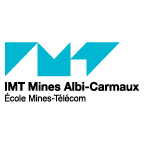
IMT Mines Albi
A school of the ministry of industry, the higher national school of mines of Albi-Carmaux is part of the Mines-Telecom Institute , which is today the first group of schools of engineering and management in France. IMT Mines Albi is also an associate member of the Federal University of Toulouse Midi-Pyrénées and partner to a great number of institutions and prestigious universities in France and abroad. These privileged partnerships make it a welcoming ‘grand école’ and research centre, rich in opportunities, and in economic and professional development prospects. Joining IMT Mines Albi means being part of this network and benefiting from its expertise and the wide variety of opportunities it offers.
HAL portal
Open Science Policy
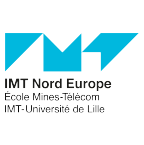
IMT Nord Europe
IMT Nord Europe is one of the 8 leading engineering and management schools that make up the Institut Mines-Télécom. The strength of the group lies in the complementary nature of its schools and their cohesion, based on a common vision: training at the service of companies, economic and territorial development, contribution to innovation and entrepreneurship.
IMT Nord Europe is also a major player in research and innovation in the Hauts-de-France region: its 3 research centres are at the heart of ecological, digital and industrial transformation.
HAL portal
Open Science Policy
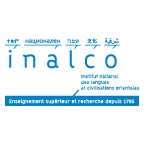
Inalco
lnalco began teaching languages and culture studies in 1795. Ever since, the Institute has cultivated its role in understanding a living heritage outside of any Western references. Inalco promotes the discovery of the world as it is, in all its wealth and diversity, with a desire to become immersed in another way of thinking. Through the quality of our courses and research, Inalco strives to disseminate the knowledge and skills essential for people to understand and engage meaningfully with each other, culturally and socially as well as professionally. Inalco’s humanist values are evident in all its teaching choices, research policy, and cultural programming.
Over the centuries, Inalco has become a unique world institution, teaching languages from Central Europe to Africa and from Asia to America via Oceania. There is no other institution in the world that offers such a diversity of courses or wealth of opportunities and knowledge in one place.
Research at Inalco combines area studies and academic disciplines, the junction of which is particularly innovative and fruitful in scientific terms. Our researchers study languages and cultures that are increasingly in the spotlight—Africa, the Middle East, Asia, and as far as the Arctic—and are central to the major issues of the 21st century.
HAL portal
Open Science Policy
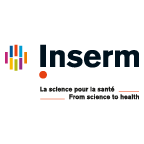
Inserm
Since 2006, a partnership between the CCSD and Inserm offers to transfer fulltext HAL deposits to the PubMed Central archive.
Founded in 1964, Inserm is a public scientific and technological institute which operates under the joint authority of the French Ministries of Health and Research. The institute is dedicated to biomedical research and human health, and is involved in the entire range of activities from the laboratory to the patient’s bedside. It also partners with the most prestigious research institutions in the world that are committed to scientific challenges and progress in these fields.
HAL portal
Open Science Policy
